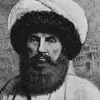@anwarkhanl5: It is like when Allāh says that it is Him who takes the souls (Qurʾān, 39:42), while at the same time, Allāh says it is the angel Sayyidunā Izrāʾīl who takes the souls (Qurʾān, 32:11). Is this a contradiction? No, this is called Majāz ʿAqlī — just like when Sayyidunā Jibrīl tells Sayyidatunā Maryam that he will grant her a son (Qurʾān 19:19), when in reality, it is Allāh who bestows children. Therefore, it is permitted to use, for example, the Prophet ﷺ as a sabab (means) and to attribute the effect to the sabab, as long as one knows that the musabbib (the one who brings about the effect) and the creator of the effect is Allāh, since everything is created by Allāh. This is known as 'kasb' (occasionalism), which is what distinguishes us from the Mubtadiʿah. We also use Majāz ʿAqlī in our everyday speech, for instance when we say to a spouse, “I hope you can give me a child,” or “The medicine has cured me,” when in reality it is Allāh who grants children and healing. The Mubtadiʿah who cannot grasp that istighātha is essentially tawassul, and that the difference lies only in wording, fail to do so because they are unfamiliar with balāgha and kasb — that is, the doctrine that Allāh creates everything. Istighātha coupled with the right belief/intention can never be shirk, just like our belief about Sayyidunā Izrāʾīl taking souls and Sayyidunā Jibrīl granting Sayyidatunā Maryam a child isn’t shirk either. This is why the Ḥanafiyyah, Shāfiʿiyyah, and Mālikiyyah permitted it, while the Ḥanābilah declared it ḥarām. None of them called it shirk, except the Wahhābī cult.

anwarkhanl5
Region: GB
Saturday 07 June 2025 21:22:15 GMT
Music
Download
Comments
There are no more comments for this video.
To see more videos from user @anwarkhanl5, please go to the Tikwm
homepage.






